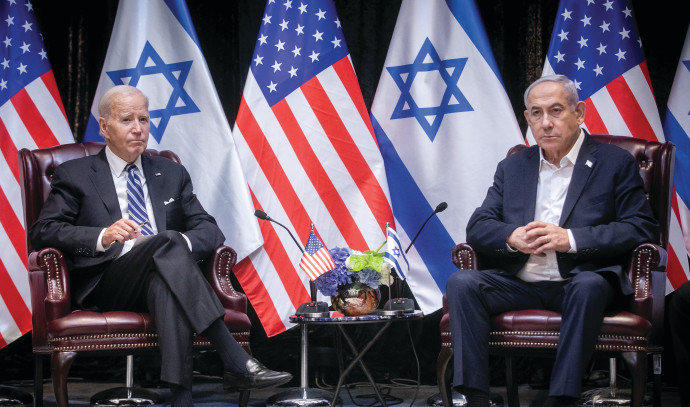US officials ask Israel to be more cautious in south Gaza offensive
The US is asking Israel to take greater care to protect civilians and limit damage to infrastructure in any offensive in southern Gaza, senior US officials said, in what amounts to a more forthright approach to protecting Palestinians.
The move represents a distinct shift in Biden administration policy after strong domestic and international criticism. It comes a month after the White House said it had set no "red lines" for Israel's response to Hamas's October 7 attacks that killed 1,200.
The Israeli offensive in northern Gaza has proven devastating, with over 15,000 Palestinians killed, disease rampant and vast numbers of survivors left homeless and forced to flee south by a relentless bombing campaign and a lack of essentials such as food, power and water.
As Israel begins to look toward south Gaza to continue battling Hamas terrorists after a pause in fighting to release hostages, US officials said they have been talking to the Israelis about taking greater care in the south, where there were now about 2 million people.
The message has been delivered from President Joe Biden on down, the officials told reporters on a conference call.
US PRESIDENT Joe Biden continues to back the Israeli military operation in Gaza. While this is not easy, especially with protests on campuses and on the left of his party, it is the right thing to do, maintains the writer. (credit: LEAH MILLIS/REUTERS)"We have reinforced this in very clear language with the government of Israel - very important that the conduct of the Israeli campaign when it moves to the south must be done in a way that is to a maximum extent not designed to produce significant further displacement of persons," one official said.
"You cannot have the sort of scale of displacement that took place in the north, replicated in the south. It will be beyond disruptive, it will be beyond the capacity of any humanitarian support network," the official said, adding "It can't happen."
The US official said the campaign needed to avoid attacks on power and water infrastructure and humanitarian sites and hospitals in south and central Gaza.
He said the Israelis had been receptive amid concerns that southern Gaza could be a more complicated battlefield.
United Nations Secretary-General Antonio Guterres on Monday described an extended truce between Israel and Hamas as "a glimpse of hope and humanity," but warned it was not enough time to meet the aid needs of the Gaza Strip.
Truce extension?
CIA Director Bill Burns was in Doha on Tuesday meeting with Qatar's prime minister and the head of Israel's Mossad, a US official said, as efforts to extend the truce intensified.
Mediator Qatar said on Monday the initial four-day truce had been extended by two days.
A second US official said Washington would like to see the humanitarian pause extended as long as possible.
The official said the first of three relief aid flights conducted by the US military would land in northern Sinai on Tuesday, with two more planned in coming days.
The flights would bring medical items, food aid and winter items that would be delivered by the United Nations .
The officials said aid deliveries to Gaza were running at about 240 truckloads a day but this was nowhere near enough.
They said the effort would need to turn to commercial contracts to get deliveries up to 400 trucks a day and the US side had been discussing this with Israel.










